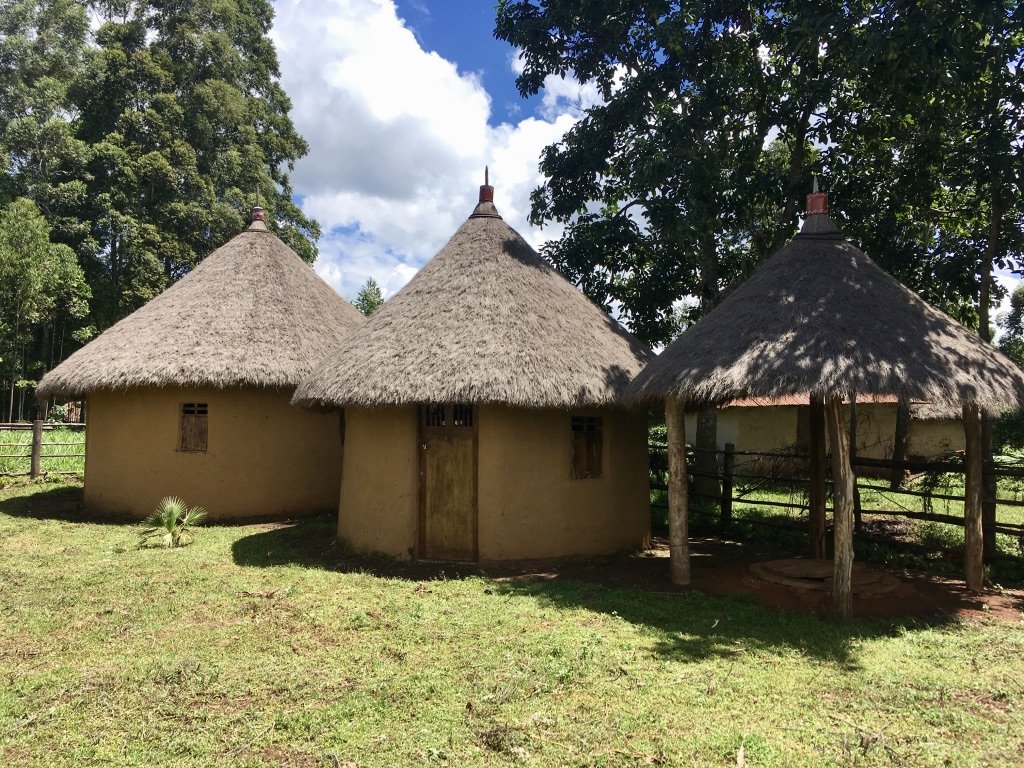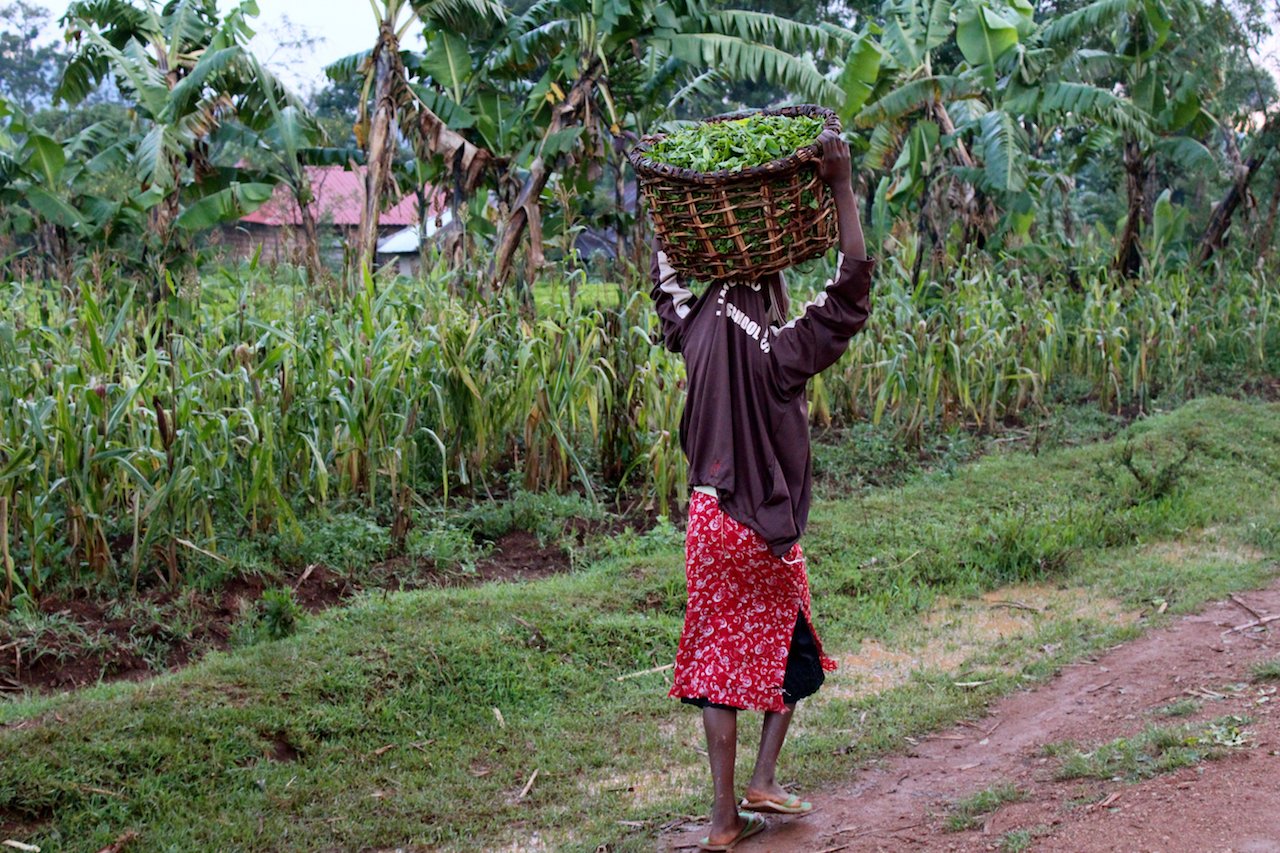Umoja
Dedicated to preserving village life, and our world.
PEOPLE ARE MOST happy and fulfilled living in natural settings, participating in meaningful work, and relating to one another as family.
For better or worse, this simpler way of life has been replaced (attacked, in some cases) in favor of technological, urbanized living with ever increasing levels of complexity that don't appear to have a correlation with realizing human potential or sustaining vibrant community.
As environmental, political, and humanitarian crises around the world escalate it is clear that our current industrial and consumption-based way of life is coming to the end of its due course. It has to.
Without a fundamental change in our values, including the way we conduct our human affairs and relate to one another, the planetary resources needed to sustain the human race resources will not be available for much longer.
If there is to be a future for humanity, it is going to be found in our past — in terms of cultivating the respect for Mother Nature and human dignity indigenous peoples throughout the world based entire cultures on, as well as undoing the physical and psychological trend of rural-urban migration.
Umoja — a Kiswahili word for harmony — is an outreach center designed to promote rural sustainability, address farmer poverty challenges, and provide care to orphan children. It is dedicated to humanity's immediate and long-term welfare – its mission is to show that there is a viable and proven way forward for us all.
Immersed in Nature
Bwabene village, Nyamira, Kenya
Umoja is located in Nyamira county in western Kenya, a peaceful and politically stable rural area 300km northwest of Nairobi near the Ugandan and Tanzanian borders. It is home to approximately 600,000 residents who survive, mostly on subsistence farming through tea sales.
Umoja is situation in a small village called Bwabene, on a sunny plot measuring approximately 150'x75'. The site is both private and centrally located, making it convenient to access for vehicles and residents who, for the most part, get around on foot.
At an altitude of 2,050m above sea level, the village features hilly topography, lush vegetation, scenic views, and beautiful terraced farms. Owing to its close proximity to Lake Victoria, Bwabene village sees ongoing annual rainfall and has a temperate climate that creates near optimal conditions for farming and living.
Due to the area's lack of modernization, Bwabene maintains a remarkable degree of natural integrity. Pure air, water, and food abound. Noise and pollution does not exist. At night, a deep and profound silence descends upon the village, while a mesmerizing tapestry of bright stars and planets, appearing as if within arm’s reach, blanket the sky.
Umoja Design Philosophy
Traditional mud huts at the Umoja site.
The overall design philosophy of Umoja is based on the Gandhian philosophy of "simple living, high thinking."
“High thinking” is connected to cultivating values like service, community, and self-reliance. Once cultivated, the desire for material goods decreases, and “simple living” emerges in the way we design our buildings, communities, and lives.
We have faith that when people have direct contact with the natural elements while participating in meaningful work that nourishes the heart, something curious starts to happen — love begins to flow, an effortless peace arises, and, kindness soon follows.
With this in mind, the majority of the compound’s structures will be constructed in the traditional style of the village, using only local and sustainable building materials. As much as possible, we will avoid employing plastic and concrete and keep modern amenities to a bare minimum.
Mahtabe’s initial design calls for thatched mud huts, a wood and clay-tiled community center, eco-friendly toilets, as well as gardens made up of a variety of native trees, plants, and vegetables.
When each hour of each day is spent in direct contact with the natural elements, while participating in meaningful work that nourishes the heart, something curious starts to happen — love begins to flow, an effortless peace arises, and, kindness soon follows.
At the most basic level, Umoja is an investment in the future of our world through sustainable, kindness-based living. As such, we see Umoja functioning as a kind of peace pole where being takes precedence over doing.
In other words, more than building a collection of structures or launching service initiatives, we aim to facilitate personal and collective harmony (Umoja) through the timeless and urgent Gandhian concept of swadeshi, or local livelihood.
Volunteerism
Umoja will be a welcome destination for international volunteers.
In the developed world, even in the midst of material abundance, people can and do feel disconnected from one another. A poverty of spirit has emerged, leaving them to find a larger purpose beyond career and retirement. Younger generations, especially, are seeking solutions.
Ironically, people in the developing world who struggle to earn $2/day often possess a humbling sense of humanity and generosity that is rooted in their traditions and strong family and communal bonds.
Volunteer interaction with orphan guardians.
The contrast creates an opportunity for powerful connection. Volunteers will be welcome at Umoja. They can share their valuable skills and help mobilize resources. Community members, in return, can share their traditions, love, and humanity. In this mutual exchange of giving and receiving, lives will change in extraordinary ways.
Self-Reliance
A village resident carries tea leaves.
The world over, rural-urban migration is growing. According to recent research, the U.N. estimates that by 2050, five billion people will live in urban centers, which is close to 70% of the human population. Why?
It’s becoming increasingly difficult to subsist alone on farming due to climate change, decreasing plot sizes from overpopulation, stagnant wages, and the rising cost of goods. Rural inhabitants, as a result, flee their native places to look for opportunity in cities, which also carry a certain seductive appeal and symbol of status.
While money is easier to come by in urban environments, there is a steep trade off for it. Many times “uneducated" farmers arrive to find they can only earn enough to live in the slums, which are prone to severe sanitation and security challenges not commonly found in villages.
Given the hyper-independent nature of urban life, community and connection is hard to come by. People are seen as consumers rather than individuals with gifts to give. And because of exposure to marketing, advertisements, entertainment, and distractions, it is easy to fall asleep and into the rabbit hole of wanting more and more.
The trade off for urban migration is our humanity. The further we drift literally and figuratively from nature and the simple village life, the more lost we become.
“Can we plant a seed now for the world we want to see tomorrow?”
A Call to Action
There are scientists and a Nobel Peace Prize-winning journalist who argue that the Earth has entered into its 6th Mass Extinction based on the fact that planetary species are disappearing at 100 times the normal rate. Staggering levels of pollution and destruction of natural habitats for urbanization and industrial purposes is to blame and, beyond that, an entire human psychology and mindset that creates these issues.
While there is likely no stopping the rural-urban migration trend without catastrophic upheaval, we believe we must keep a flame of hope alive.
Can Umoja…
Plant a seed now for the world we want to see tomorrow?
Sustain itself without outside financial support
Grow enough food to feed its residents and guests?
Be a living demonstration of the value of village living?
Assist those in poverty find ways to generate livelihood?
Inspire others to create similar centers?
Given the state of world affairs and threats to our species, we believe it's necessary to find out..
Service
Orphan children in Bwabene village.
Community service and development projects will account for the majority of Umoja’s day-to-day activity.
Mainly due to extreme poverty, HIV/AIDS, and the inability to travel to a hospital or afford medical care when sick, the area surrounding Bwabene village is home to an unusually high — numbering in the thousands — population of orphans. Though these children have been adopted by guardian families, it's not uncommon for them to be malnourished, unloved, and not in school.
Drawing inspiration from one of our other projects, the Malezi Centre in Narobi, one of the first priorities is to immediately launch a free afternoon care program for some of the neediest orphan children in the area.
These kids would have a beautiful and safe place to play, would receive love and care from local and international volunteers, and learn basic lessons from a paid teacher. They would also receive a free dinner, making sure that they are getting at least one nutritious meal a day (a problem in many cases).
Looking to the future, we see Umoja as an incubator for a number of community development and “gift economy” projects that will create employment, solve local challenges, and transform the dependency-based “handout mentality” prevalent in the country.
Primarily, our intention is to preserve and promote village life through projects and activities that connect people together in a joyful, meaningful way.
Current Status
Umoja has partially launched and currently supports distribution programs and a semi-annual Christmas celebration for the
orphan children of the village.
A full launch is currently pending as we continue to assess the right time to fully move forward.
For further updates, you can sign up for the newsletter below.






